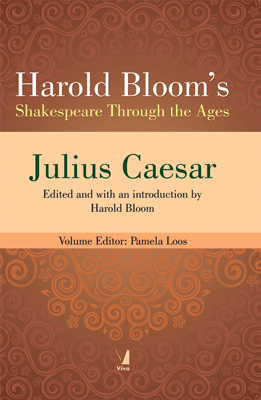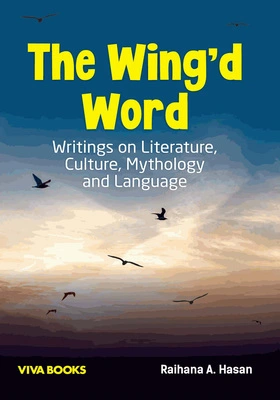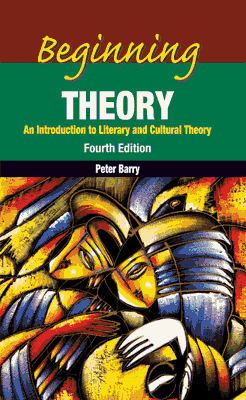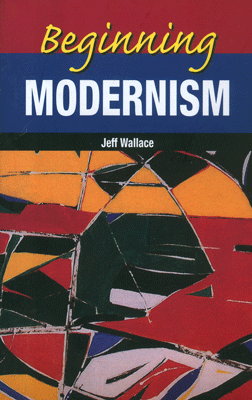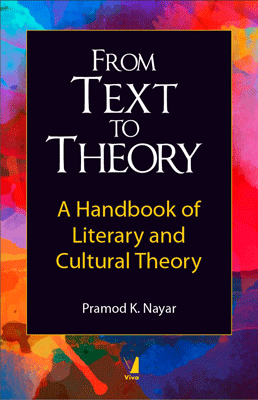Julius Caesar
Julius Caesar
Edited and with an introduction by Harold Bloom
₹535.50 ₹595.00 Save: ₹59.50 (10%)
Go to cart-
Out of Stock
ISBN: 9788130933870
Bind: Paperback
Year: 2016
Pages: 328
Size: 152 x 228 mm
Publisher: Facts On File Inc.
Published in India by: Viva Books
Exclusive Distributors: Viva Books
Sales Territory: India, Nepal, Pakistan, Bangladesh, Sri Lanka
Description:
Julius Caesar is one of Shakespeare's most majestic works. Set in the tumultuous days of ancient Rome, this play is renowned for its memorable characters and political intrigue, and it has been captivating audiences and readers since it was first presented more than 400 years ago. This invaluable new study guide to one of Shakespeare's greatest tragedies contains a selection of the finest criticism through the centuries on Julius Caesar, including commentaries by such important critics as Ben Jonson, Samuel Taylor Coleridge, Kenneth Burke, and many others. Students will also benefit from the additional features in this volume, including an introduction by Harold Bloom, an accessible summary of the plot, an analysis of several key passages, a comprehensive list of characters, a biography of Shakespeare, essays discussing the main currents of criticism in each century since Shakespeare's time, and more.
Each volume in the Bloom's Shakespeare Through the Ages contains the finest criticism on a particular work from the Bard's oeuvre, selected under the guidance of renowned Shakespearean scholar, Harold Bloom “ Intended for students just beginning their exploration of Shakespeare, these invaluable study guides present the best of Shakespeare criticism, from the 17th century to today “ In the process, each volume also charts the flow over time of critical discussion of a particular work.
This essential series is unique not only in the range of commentary it provides on each of Shakespeare's greatest works, but also in its emphasis on the greatest critics in our literary tradition — including such critics as John Dryden in the 17th century, Samuel Johnson in the 18th century, William Hazlitt and Samuel Taylor Coleridge in the 19th century, A. C. Bradley and William Empson in the 20th century, and many more “ Some of the pieces included are full—length essays; others are excerpts designed to present a key point.
Target Audience:
Students and academics of English Literature.
Contents:
Series Introduction • Introduction by Harold Bloom • Biography of William Shakespeare • Summary of Julius Caesar • Key Passages in Julius Caesar • List of Characters in Julius Caesar
CRITICISM THROUGH THE AGES
Julius Caesar in the Seventeenth Century • 1601—John Weever. From The Mirror of Martyrs • 1641—Ben Jonson. “De Shakespeare nostrat[i],” from Timber, or Discoveries Made Upon Men and Matter • 1672—John Dryden. “Prologue to Julius Caesar” • 1693—Thomas Rymer. From A Short View of Tragedy
Julius Caesar in the Eighteenth Century • 1739—Colley Cibber. Chapter IV, from An Apology for the Life of Mr. Colley Cibber • 1748—John Upton. Section X, from Critical Observations on Shakespeare • 1761—Voltaire. “Essay on Tragedy,” from Critical Essays on Dramatic Poetry • 1768—Samuel Johnson. “Julius Caesar,” from General Observations on Shakspeare” Plays • 1769—Elizabeth Montagu. “Upon the Death of Julius Caesar,” from An Essay on the Writings and Genius of Shakespear
Julius Caesar in the Nineteenth Century • 1809—August Wilhelm Schlegel. From Lectures on Dramatic Art and Literature • 1813-1816—Johann Wolfgang von Goethe. “Shakespeare Compared with the Ancients and the Moderns,” from Shakespeare Ad Infinitum • 1817—William Hazlitt. “Julius Caesar,” from Characters of Shakespear's Plays • 1818—Samuel Taylor Coleridge. “Julius Caesar,” from Lectures and Notes on Shakspere and Other English Poets • 1846—Hermann Ulrici. From Shakespeare's Dramatic Art, and His Relation to Calderon and Goethe • 1849-1850—Georg Gottfried Gervinus. “Character of Caesar,” from Shakespeare Commentaries • 1872—H.N. Hudson. From Shakespeare: His Life, Art, and Characters • 1875—Edward Dowden. From Shakspere: A Critical—Study of His Mind and Art • 1879—Paul Stapfer. “Julius Caesar (continued). Casca. Cicero. Portia,” from Shakespeare and Classical Antiquity: Greek and Latin Antiquity as Presented in Shakespeare's Plays” • 1882—Friedrich Nietzsche. “In Honour of Shakespeare,” from The Complete Works of Friedrich Nietzsche. • 1893—Richard G. Moulton. “How the Play of Julius Caesar Works to a Climax at the Centre: A Study in Passion and Movement,” from Shakespeare as a Dramatic Artist: A popular Illustration of the Principles of Scientific Criticism • 1894—Oscar Fay Adams and Frank A. Marshall. “Julius Caesar: Critical Remarks,” from The Works of William Shakespeare • 1898—George Bernard Shaw. “Tappertit on Caesar,” from Our Theatres in the Nineties
Julius Caesar in the Twentieth Century • 1931—G. Wilson Knight. “The Eroticism of Julius Caesar,” from The Imperial Theme: Further Interpretations of Shakespeare's Tragedies Including the Roman Plays • 1935—Kenneth Burke. “Antony in Behalf of the Play,” from The Southern Review • 1946—Harley Granville—Barker. Julius Caesar: The Play's Structure,” from Prefaces to Shakespeare • 1947—W.H. Auden. “Julius Caesar,” from Lectures on Shakespeare • 1951—Harold C. Goddard. “Julius Caesar,” from The Meaning of Shakespeare • 1955—T.S. Dorsch. “Introduction: Language and Imagery,” from Julius Caesar . • 1986—Dieter Mehl. “Julius Caesar,” from Shakespeare's Tragedies: An Introduction • 1994—Harold Bloom. “Introduction,” from Julius Caesar • 1996—Harold Bloom. “Introduction,” from Bloom's Notes: William Shakespeare's Julius Caesar
Julius Caesar in the Twenty—first Century • 2000—Frank Kermode. “Julius Caesar,” from Shakespeare's Language • 2002—E.A.J. Honigmann. “Sympathy for Brutus,” from Shakespeare: Seven Tragedies Revisited: The Dramatist's Manipulation of Response • 2005—Andrew Hadfield. “The End of the Republic: Titus Andronicus and Julius Caesar,” from Shakespeare and Republicanism
Bibliography “ Acknowledgments “ Index
Series Introduction • Introduction by Harold Bloom • Biography of William Shakespeare • Summary of Julius Caesar • Key Passages in Julius Caesar • List of Characters in Julius Caesar
CRITICISM THROUGH THE AGES
Julius Caesar in the Seventeenth Century • 1601—John Weever. From The Mirror of Martyrs • 1641—Ben Jonson. “De Shakespeare nostrat[i],” from Timber, or Discoveries Made Upon Men and Matter • 1672—John Dryden. “Prologue to Julius Caesar” • 1693—Thomas Rymer. From A Short View of Tragedy
Julius Caesar in the Eighteenth Century • 1739—Colley Cibber. Chapter IV, from An Apology for the Life of Mr. Colley Cibber • 1748—John Upton. Section X, from Critical Observations on Shakespeare • 1761—Voltaire. “Essay on Tragedy,” from Critical Essays on Dramatic Poetry • 1768—Samuel Johnson. “Julius Caesar,” from General Observations on Shakspeare” Plays • 1769—Elizabeth Montagu. “Upon the Death of Julius Caesar,” from An Essay on the Writings and Genius of Shakespear
Julius Caesar in the Nineteenth Century • 1809—August Wilhelm Schlegel. From Lectures on Dramatic Art and Literature • 1813-1816—Johann Wolfgang von Goethe. “Shakespeare Compared with the Ancients and the Moderns,” from Shakespeare Ad Infinitum • 1817—William Hazlitt. “Julius Caesar,” from Characters of Shakespear's Plays • 1818—Samuel Taylor Coleridge. “Julius Caesar,” from Lectures and Notes on Shakspere and Other English Poets • 1846—Hermann Ulrici. From Shakespeare's Dramatic Art, and His Relation to Calderon and Goethe • 1849-1850—Georg Gottfried Gervinus. “Character of Caesar,” from Shakespeare Commentaries • 1872—H.N. Hudson. From Shakespeare: His Life, Art, and Characters • 1875—Edward Dowden. From Shakspere: A Critical—Study of His Mind and Art • 1879—Paul Stapfer. “Julius Caesar (continued). Casca. Cicero. Portia,” from Shakespeare and Classical Antiquity: Greek and Latin Antiquity as Presented in Shakespeare's Plays” • 1882—Friedrich Nietzsche. “In Honour of Shakespeare,” from The Complete Works of Friedrich Nietzsche. • 1893—Richard G. Moulton. “How the Play of Julius Caesar Works to a Climax at the Centre: A Study in Passion and Movement,” from Shakespeare as a Dramatic Artist: A popular Illustration of the Principles of Scientific Criticism • 1894—Oscar Fay Adams and Frank A. Marshall. “Julius Caesar: Critical Remarks,” from The Works of William Shakespeare • 1898—George Bernard Shaw. “Tappertit on Caesar,” from Our Theatres in the Nineties
Julius Caesar in the Twentieth Century • 1931—G. Wilson Knight. “The Eroticism of Julius Caesar,” from The Imperial Theme: Further Interpretations of Shakespeare's Tragedies Including the Roman Plays • 1935—Kenneth Burke. “Antony in Behalf of the Play,” from The Southern Review • 1946—Harley Granville—Barker. Julius Caesar: The Play's Structure,” from Prefaces to Shakespeare • 1947—W.H. Auden. “Julius Caesar,” from Lectures on Shakespeare • 1951—Harold C. Goddard. “Julius Caesar,” from The Meaning of Shakespeare • 1955—T.S. Dorsch. “Introduction: Language and Imagery,” from Julius Caesar . • 1986—Dieter Mehl. “Julius Caesar,” from Shakespeare's Tragedies: An Introduction • 1994—Harold Bloom. “Introduction,” from Julius Caesar • 1996—Harold Bloom. “Introduction,” from Bloom's Notes: William Shakespeare's Julius Caesar
Julius Caesar in the Twenty—first Century • 2000—Frank Kermode. “Julius Caesar,” from Shakespeare's Language • 2002—E.A.J. Honigmann. “Sympathy for Brutus,” from Shakespeare: Seven Tragedies Revisited: The Dramatist's Manipulation of Response • 2005—Andrew Hadfield. “The End of the Republic: Titus Andronicus and Julius Caesar,” from Shakespeare and Republicanism
Bibliography “ Acknowledgments “ Index
About the Editor:
Series Editor Harold Bloom is Sterling Professor of the Humanities at Yale University and the author of more than 30 books, including Shelley's Mythmaking (1959), Blake's Apocalypse (1963), Yeats (1970), The Anxiety of Influence (1973), A Map of Misreading (1975), Kabbalah and Criticism (1975), Agon: Toward a Theory of Revisionism (1982), The American Religion (1992), The Western Canon (1994), Shakespeare: The Invention of the Human (1998), How to Read and Why (2000), Hamlet: Poem Unlimited (2003), Where Shall Wisdom Be Found” (2004), and Jesus and Yahweh: The Names Divine (2005). In 1999, Professor Bloom received the American Academy of Arts and Letters” Gold Medal for Criticism.
